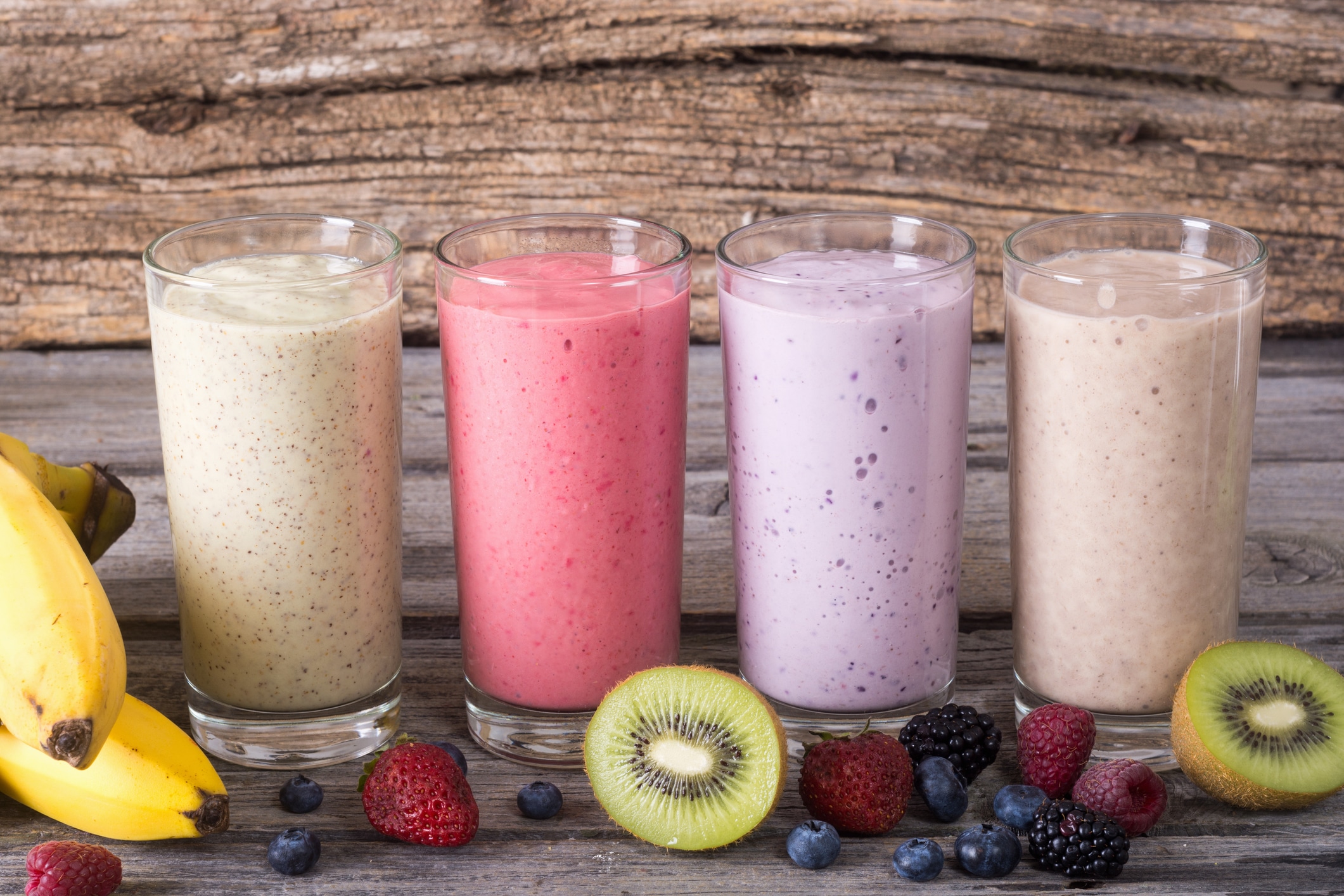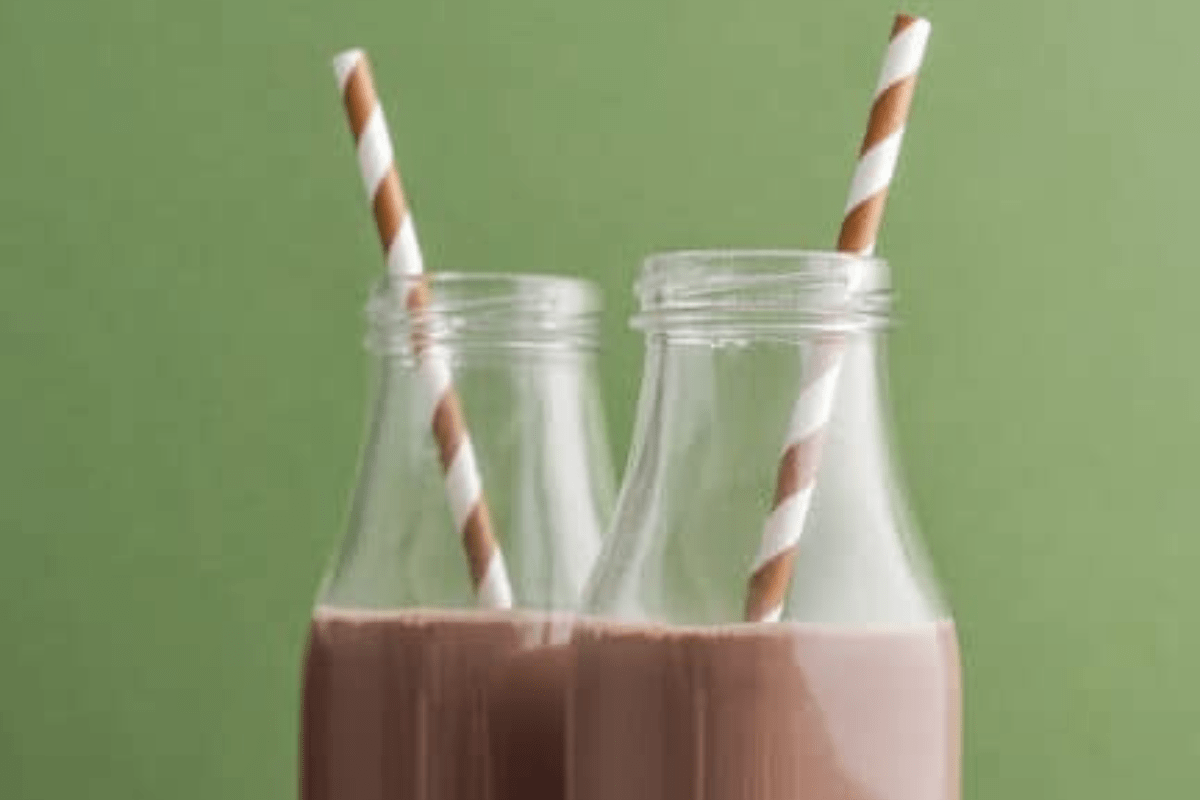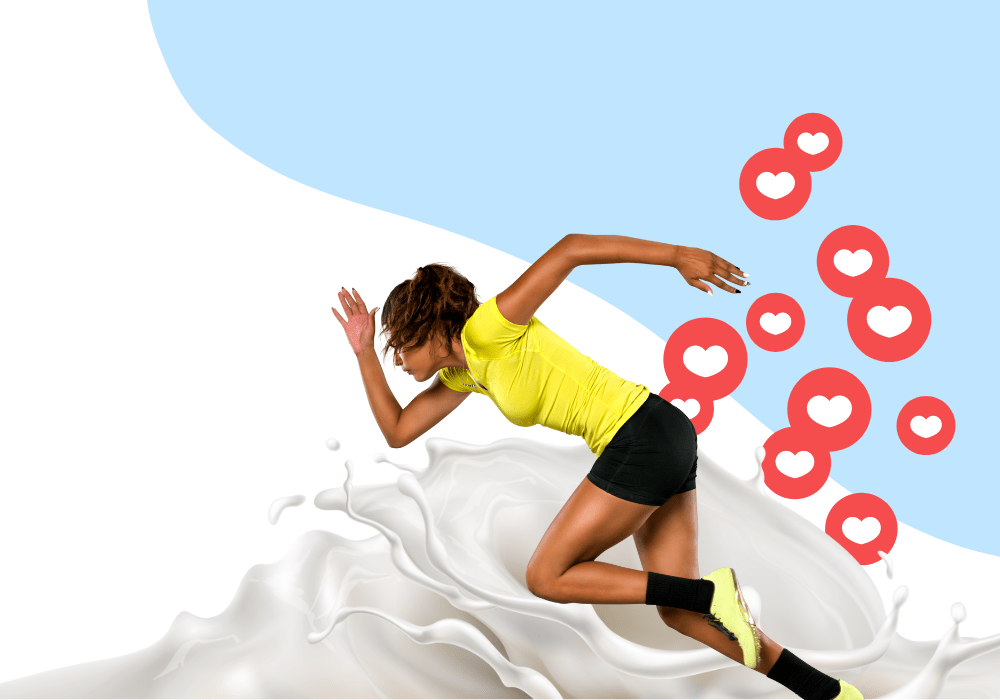Ice hockey is a high-energy sport that involves skating with continuous quick stops, bursts of speed, and maneuvering past opponents. Preparation includes a combination of on-ice and off-ice training to improve puck skills, endurance, speed, and strength.
The training demands for hockey are intense and vary based on the level of training. Hockey players are required to wear heavy equipment that can dramatically impact their total fluid losses and sweat rate. An appropriate sports nutrition plan for student athlete hockey players should support their high daily energy needs while emphasizing hydration needs.
Nutrition Requirements for Ice Hockey
The total daily calories needed to fuel hockey players can vary greatly from one athlete to another. Needs are based on age, height, weight, training schedule, frequency of games, and the amount of playing time the athlete gets during a game. Multiple meals and snacks are needed each day to meet nutritional needs and should ideally include a combination of carbs, protein, fat, and fluids.
Carbohydrate
Carbohydrate is the primary fuel source used in endurance sports and is an essential energy source for quick bursts of speed and power. Hockey players need more than 5 grams of carbohydrate per kilogram of body weight each day and between 8 and 10 grams per kilogram of body weight on heavy training and competition days. For a 160-pound (73 kg) athlete, that equates to over 365 grams of carbohydrate on rest and recovery days and between 584 and 730 grams on training and competition days.
Examples of carbohydrate rich foods are starchy foods like breads, cereals, rice, pasta, and other grains; fruits, fruit juices and vegetables; milk and yogurt; beans and legumes; and simple sugars like those found in sports drinks, sports gels, table sugar, honey and syrups.
Protein
Protein can be thought of as construction material because it is needed to build and repair body tissues. Athletes have a higher protein requirement than non-athletes to support their additional lean muscle maintenance and growth. Hockey players should aim to get between 1.4 and 1.7 grams of protein per kilogram of body weight, each day. For a 160-pound (73 kg) hockey player, that equates to between 88 and 124 grams of protein each day.
Examples of protein-rich foods to include in your sports nutrition plan are lean meats, poultry, fish, eggs, beans and dairy foods like milk, yogurt and cheese.
Fat
Fat is another important energy source for hockey players. Once carbohydrate and protein requirements have been determined, the remainder of the daily calories will come from fat.
Fat is found naturally in many protein-rich foods such as meat, cheese, whole milk and eggs. It is also found in nuts, seeds, avocados, oils, salad dressings and butter.
Below is an example of how a 160-pound hockey student-athlete could distribute total daily calories over the course of the day.
Daily Nutritional Requirements for Ice Hockey
| Based on a 160 lb. Student Athlete (73 kg) | ||||
| Carbohydrate | Protein | Fat | ||
| Daily Requirements
(Rest Days) |
> 5 g/kg/d | (1.4-1.7 g/kg/d) | Remainder of calories to meet daily energy requirement | |
| Daily Requirements
(Training & Competition) |
8-10 g/kg/d | (1.4-1.7 g/kg/d) | Remainder of calories to meet daily energy requirement | |
| Daily Total (Rest Days) | 365 g/kg/d | 88-124 g | Varies based on daily calorie requirement | |
| Daily Total (Training & Competition) | 584- 730 g | 88-124 g | Varies based on daily calorie requirement | |
| Per Meal (3 Meals/Day) | 90- 150 g | 25-35 g | ~20-30 grams | |
| Per Snack (3 Snacks/Day) | 45-75 g | 15-20 g | Minimum of 15 grams | |
| Please note: Additional carbohydrates may be needed before, during & after training or competition to meet daily requirement | ||||
Source: Sports Nutrition: A Handbook for Professionals
Fueling Requirements for Before, During and After Training & Competitions
To meet the high energy and fluid needs required to perform well, hockey players need to include additional fuel and fluids before, during and after training and competitions.
Before
All athletes should start a training session or a hockey game well-hydrated and well-fueled. The body uses the carbohydrate, protein and fat from food as energy during training sessions and/or hockey games. The extra fluid will help minimize total body fluid losses that results from sweating.
In addition to regular meals and snacks, hockey players should have extra fluids and a carbohydrate-rich snack about 45 minutes before a game is scheduled to start. While the snack can also include some protein and fat, it is important to choose something that is easy on your stomach and can digest relatively quickly. That way, you feel fueled and ready to go at the start of the game.
There is no such thing as a “best” food to have before activity. The key is to try different food combinations during training so you know what works well for game day. Examples include a banana with peanut butter or another nut butter; cereal with milk and berries; a bagel with light spread of cream cheese; a granola bar and banana; and oats, nut butter, and raisin energy bites. To help meet hydration needs, carry a water bottle with you at all times and sip water throughout the day.
During
One of the most important nutrition strategies for hockey players is to sip water throughout training and gulp fluids between shifts and periods during games. Doing so will replenish some of the fluid that was lost through sweat and help minimize total fluid losses. For hockey games lasting 60 minutes or less, water should be an adequate beverage. When the playing time is over an hour, a sports drink that supplies carbohydrate, fluid and electrolytes is a better option.
Aim to drink 4 to 6 ounces of fluid during every period of play, or about every 15 to 20 minutes during training. Heavy sweaters will likely need to increase fluid intake even further to maintain optimal hydration level. If the game includes an intermission between periods, consider eating an easy-to-digest, carbohydrate-rich snack to help replenish muscle fuel stores. Dried fruits, orange slices, sports gels or an energy bar are a few examples.
After
Hockey players burn through energy quickly during a game, making refueling and rehydrating a high priority. In fact, it is estimated that National Hockey League (NHL) professional hockey players can burn 1500 calories or more during a game. An optimal refuel snack should include fluid to help replace losses, carbohydrate to replace the muscle glycogen stores that were used for fuel during the game, and protein to support muscle mass. One of the best refueling options is chocolate milk because it provides the fluid, carbohydrate and protein all in one convenient beverage. Other options are a smoothie; yogurt topped with fresh berries and granola along with water; ham and cheese sandwich with chips and milk.
Other Considerations
Playing hockey involves late night practices and travel to and from games. Planning and preparing meals and snacks is necessary to fuel and hydrate properly. Make sure to have some shelf-stable, easy-to-eat foods and fluids with you at all times. Keep items like trail mix, fruit cups, shelf-stable chocolate milk, bagels, crackers and nut butters in your backpack or sports bag so that you are prepared for times when you can’t make it home or to a store to eat.





